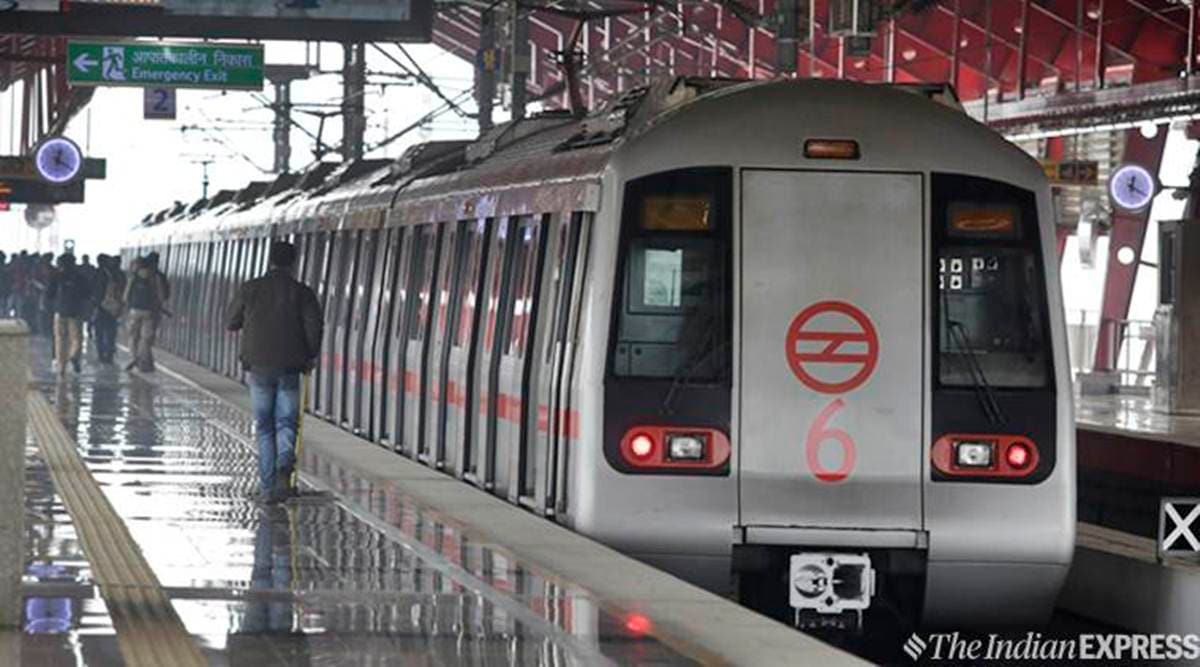 According to the plan, train frequency will be less initially and scaled up based on demand.
According to the plan, train frequency will be less initially and scaled up based on demand.The Delhi Metro plans to completely discontinue tokens and cash transactions involving commuters once services resume and allow only smart cards, which will also have to be recharged solely through cashless modes.
Metro services, suspended since March 22 in the wake of the coronavirus outbreak, is likely to resume in September in a limited manner under Unlock 4 guidelines to be released by the Home Ministry.
According to a plan drawn up following guidelines of the Union Ministry of Housing and Urban Affairs, parking facilities at the stations and feeder bus services that connect the stations with nearby areas will remain unavailable for the time being.
The Standard Operating Procedure (SOP) prepared by DMRC says, “All transactions for recharge of cards, etc will be through cashless mode, tokens will not be allowed for travel, only smart cards/QR code will be allowed, ticket vending machines will not accept cash.”
The Centre had in May written to all Metro operators suggesting that QR code-based tickets be linked with the Aarogya Setu app to ensure only “safe passengers” gain entry into stations once the restrictions on services are lifted.
However, since very few entry gates in Delhi Metro are presently equipped to scan QR-codes, commuters will have to make use of other cashless modes including credit or debit cards, e-wallets like Paytm and new smart cards ‘Autope’ which can be linked with bank accounts.
The new cards will automatically top up a customer’s card upon swiping it at the fare collection gates, whenever the balance goes below Rs 100. The fresh recharge amount will be debited from the account linked with the card. Older smart cards can also be equipped with this feature.
According to the plan, train frequency will be less initially and scaled up based on demand. Alternate seats will have to be left vacant and a distance of one metre will have to be maintained between two persons standing.
The temperature inside the coaches will be between 24-28 degrees celsius and as far as possible, fresh air will be infused by keeping the doors open for extended periods at terminal stations. There are currently 285 stations under DMRC, which has a network measuring 389 km across Delhi and NCR cities such as Noida, Gurgaon and Faridabad.
“The duration of trains waiting at every station will be increased substantially so that passengers have sufficient time to board and alight. There will be announcements inside trains and stations for maintaining social distancing. Some stations may be skipped if sufficient passengers are not available or the train is already full,” says the SOP.
It adds that the Aarogya Setu app and masks will be “necessary” before entering stations after thermal screening at frisking points – where sanitisers will be available — manned by CISF jawans. Not more than three passengers will be allowed inside lifts. They will be “advised” to stand on alternate steps of escalators.
Passengers with a temperature or showing symptoms of Covid will be barred from travelling. Bright stickers to maintain social distancing have already been pasted at points where passengers are expected to queue up such as frisking points, help desks, entry gates and lifts. To prevent violations, Metro will deploy additional staff at stations, including one senior officer for every two stations, and more workers for cleaning and disinfecting areas frequently touched.